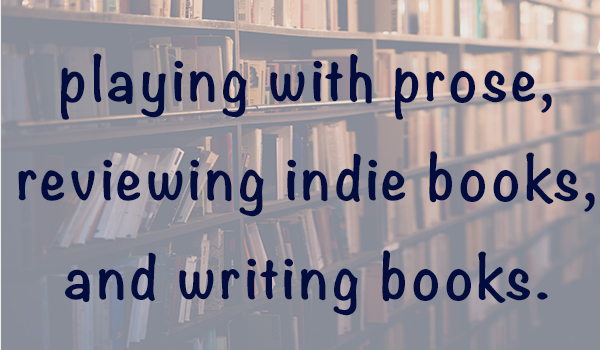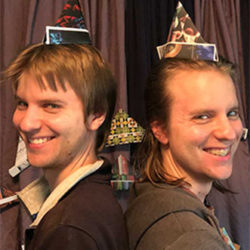
#16 Caffadel’s Cure
Salutations all you neurotic newts, today we have a piece from Slam on Writing.com titled Caffadel’s Cure.
Paragraph 1
I was walking westward on a dirt road. It was a densely forested area, I couldn’t see beyond the trees. I looked ahead, the road was going up a small hill. I walked towards the hill and realized that there was a faint thumping noise. As I got closer to the hill, the thumping got louder. I made my way up to the top, looked down the other side and saw a cozy little town. It was a congregation of wooden homes arranged around a central square. There seemed to be some sort of celebration in the center. A crowd was gathered around a singular point, and a couple men were loudly playing drums. There was no rhyme or reason to the beat. They simply hit their drums as hard and quick as they could. I walked down the hill and into the town, heading to the central square.
In looking at this paragraph its most significant flaw is that it is boring, which is a cardinal sin for starting paragraphs. But, in pursuit of solutions it helps to understand why it’s boring. (It is worth noting that to avoid a boring start some authors would initiate their story with an action sequence, but this is a trap. Action without context is little better because the readers won’t care about what they’re reading, like a non-sports fan trying to watch an excellent major league game. That segue aside…) Here there are two factors contributing to the sentence being boring: The first is that what the author chooses to describe is mundane and the pacing they use is meandering. Environment description is important because it locates the readers in the story, but that doesn’t make it engaging, so its needs to be handled concisely or conveyed as an ancillary detail to something that is interesting. (You could also make the environment interesting by using uncommon details or descriptions.) The second factor is that it’s irrelevant. Most of the words here do nothing to benefit the narrative or character. In fact, there’s no semblance of narrative or personality in the prose at all until the fifth or sixth sentence. There’s nothing that tells the readers to keep reading.
So, how do we fix it? First, by cutting and streamlining, reducing it to both increase the pace and cut the fluff so the prose feels like it has purpose, and maybe give the description a little bit of life.
—I was walking westward on a dirt road, surrounded by dense forest. The road led to a small hill. As I approached the hill, I heard a faint thumping, which grew louder as I neared, drawing me to the peak and to gaze down upon a cozy little town that seemed in the midst of a celebration. (This is a work in progress.)
The rhythm here is obviously rough, but we’ll resolve that momentarily. My main purpose here was to tighten the narrative and description. I combined the first two sentences because doing so improved their narrative rhythm but also because it allowed me reduce ‘it was a’ to ‘surrounded by.’ Then I deleted ‘I couldn’t see beyond the trees’ because it adds nothing to the story and is also self-evident in a dense forest. I deleted ‘I looked ahead’ because the character doesn’t need to look at something for us to see it, so including it just bogs down the prose and narrative. I reduced ‘was going up’ to ‘led to’ for the active (which is doubly important here because it gives this section momentum that ‘was’ does not’) and to reduce word count. I combined and restructured the next two sentences to reduce wordcount, but also to speed up the narrative. The extra period slows the paragraph distinctly, because by separating the two sentences the author emphasizes them. And, of course, the period adds a pause. Combining them de-emphasizes them and allows them to be treated as one smooth thought instead of two distinct ones. I combined it with the next sentence as well for mostly the same reasons, but also because it flowed better. I deleted the description of the town because everyone knows what a town looks like and the author does nothing to alter that natural image here, meaning it serves no purpose. (We know the society is at least somewhat medieval because of the dirt road, him walking, and the forest, so there’s no need of the description to place the time period.) I reduced the sentence where we are introduced to the celebration by combining it with the previous sentence and also by cutting ‘in the center’ as unnecessary specificity.
These rewrites don’t make the content any more interesting, but they make it cleaner and more quickly navigated to the point where the story actually begins. But there’s still work to do, we need to read for rhythm and see if we can infuse it with a little life. These changes are going to require deviations from the author’s work, but I’m sure you stalwart souls can manage that hardship.
My original edit:—I was walking westward on a dirt road surrounded by dense forest. The road led to a small hill. As I approached the hill, I heard a faint thumping, which grew louder as I neared, drawing me to the peak and to gaze down upon a cozy little town that seemed in the midst of a celebration.—
My revised edit:— I walked westward along the old dirt road, shielded from the sun by the forest’s shade. A gentle wind whispered over a small hill further on, rich with the scents of spring and a faint, rhythmic thumping. The sound grew louder as I neared, drawing me to the hill’s peek where I gazed upon a cozy little town seemingly in the midst of celebration.—
Obviously, this is hugely different from the author’s original paragraph, and it’s significantly longer than my first edit. So, why did I add so much? Some of it was just for rhythm purposes, but most of it was just my attempts to make the description feel alive, to give it something that made me actually want to write it, contain something I actively wanted to convey. This is not to say the original author didn’t have something he wanted to convey, but it doesn’t come across. His description lacked energetic adjectives, and those he did use were generic.
Theory aside, what I added were adjectives, the ‘old’ for dirt road (conveying a sense of history and heritage, and thus personality to this road) then changed how the forest was implemented, altering it from superficial background to it actually interacting with the character and thus the readers. Now, it’s shielding our MC from the sun, which puts real sensation in the world, putting the MC, and thus the readers, in a cool environment, but it’s also hot outside the forest. It also paints the world into shade, which is left entirely ambiguous in the first rendition. Then, I added ‘whispered’ and ‘rich scents,’ which infuses the story with two more of our main senses (sound and smell) again making it more present and real by interacting with the MC and thus the reader. The rest was just necessary adjustments for rhythm. (More eagle-eyes readers will note I also successfully removed the two mentions of ‘road’ from my first edit.)
Part 2 of the First Paragraph: A crowd was gathered around a singular point, and a couple men were loudly playing drums. There was no rhyme or reason to the beat. They simply hit their drums as hard and quick as they could. I walked down the hill and into the town, heading to the central square.
For this section, there’s significantly more subtle repetitions/inefficiencies. The first being ‘singular point’ and ‘a couple men.’ Both of these represent the same thing, the first introduces it and the second clarifies, but you don’t need the introduction so delete. —The festivities appeared centered around a group of men exuberantly playing drums.— (I switched to ‘exuberantly’ because I think it reads better than ‘loudly’ and better suits them playing without rhythm. There is also a possibility that the author did intend the men and singular point to be different, in which case I might exchange ‘and’ for ‘while’, which reads smoother.)
The next sentence can also be married to the first, thus removing the need for the passive voice. And a few well chosen adjectives will remove the need to clarify with ‘to the beat.’ —…playing drums without rhythm or (?.)— (It needs another adjective for the sake of rhythm, but I can’t think of one.)
For the third sentence, we just delete it. By using ‘exuberantly’ above we indicate that they’re playing hard and fast, thus removing the need for this sentence. ‘Exuberantly’ also conveys a sense of abandon, which suits the fact that they’re playing without rhythm.
Concluding with the final sentence, the phrase ‘I walked down the hill’ is unnecessary because we know he’s on a hill, so he would have to walk down it to enter the town. Thus, just having him enter the town conveys that he descended. The same is true for ‘central square’ and ‘into the town,’ the first of these conveys the second. The problem is, that deleting both of these leaves us with too short of a sentence. The solution to this is to delete them and add something else, something new and exciting, daring and sacrilegious. Like carrots.
All of my edits— I walked westward along the old dirt road, shielded from the sun by the forest shade. A gentle wind whispered over a small hill further on, rich with the scents of spring and a faint, rhythmic thumping. The sound grew louder as I neared, drawing to the hill peek where I gazed upon a cozy little town seemingly in the midst of a celebration. The festivities appeared centered around a group of men exuberantly playing drums without design or rhythm.
I bit into my carrot and descended to the town center.
Looking at it all unified, the rhythm from ‘midst of a celebration’ to ‘the festivities’ feels a little off. I think it’s because ‘the festivities’ sentence is the introduction of a new thought, but it’s so brief that it leaves the sentence/reader feeling incomplete. So, a potential alteration is holy matrimony—…of a celebration, most of it centered around…—.
For the most part, I do think this works. The sentence may be a little long, but it’s not too egregious of a sin.
There is also a slight inconsistency, with the sound initially be described as ‘rhythmic,’ but the drummers play without rhythm.
That’ll be all for today ye wallowing wheat, if you like what you’ve read, please consider subscribing and potentially check of the author’s other work. https://www.writing.com/main/portfolio/view/slamalama#-2200149

